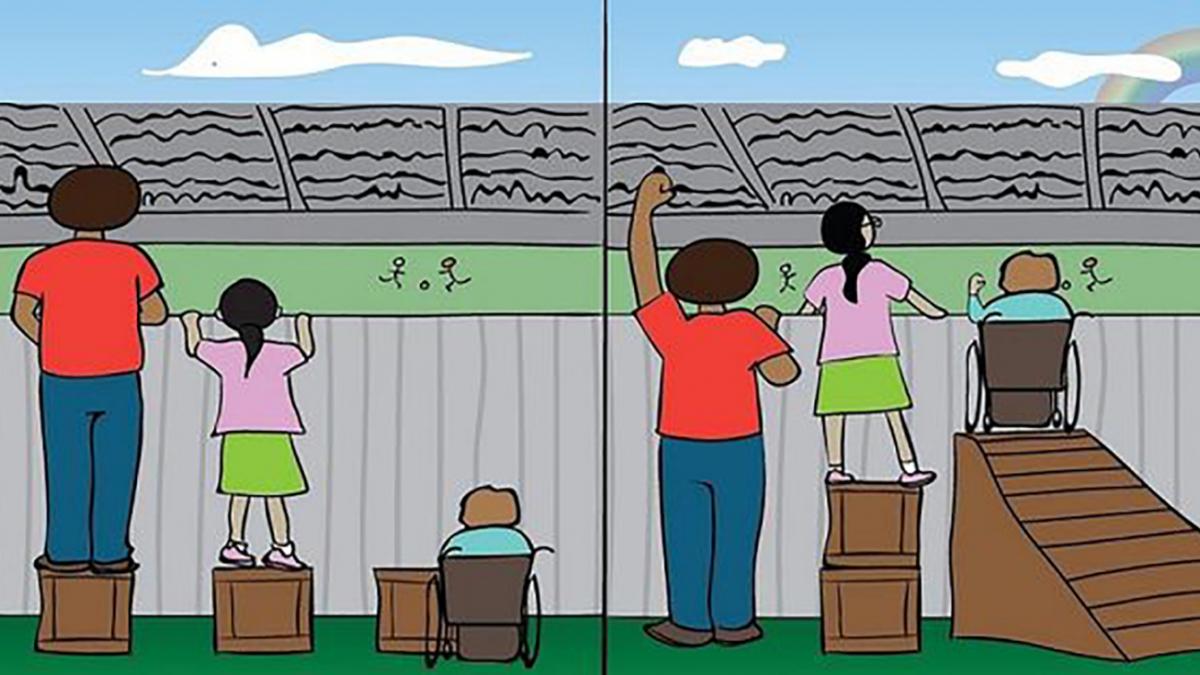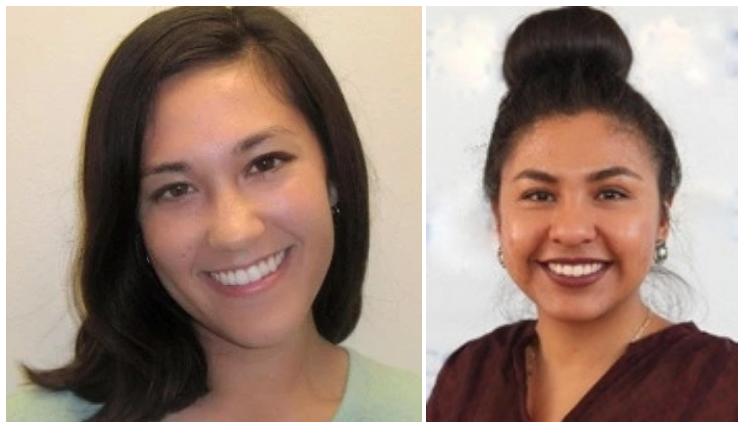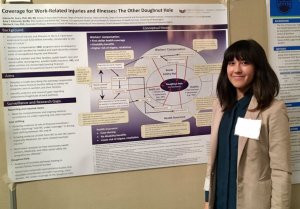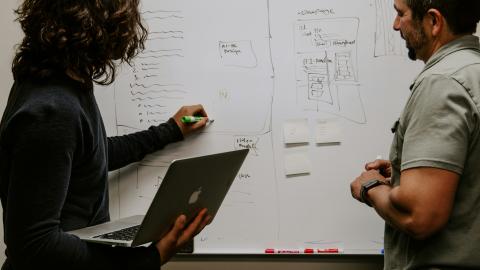
Each year, the American Public Health Association (APHA) annual meeting and expo brings together the brightest minds in public health from across the United States to share ideas, network, and discuss current research. The 2018 meeting took place in November 2018 in San Diego, California. Thousands of professionals gathered under the theme, "Creating the Healthiest Nation: Health Equity Now", including several Northwest Center for Occupational Health and Safety ERC trainees.

Amy Edmonds (left), a third year doctoral student in the Occupational Health Services Research program, and Erica Chavez (right), a first year student in the same program attended APHA 2018 where Amy presented ,"Tracking opioid prescribing trends in Washington State (2012-2017): Differences by county-level economic conditions and urban-rural classification" as an oral presentation on behalf of her research team led by Dr. Jeanne Sears.
"This study touches on many of my interests" says Amy, "Rurality and county-level economic conditions are important social determinants of health and health care, and I'm interested in studying health strategies to ensure more equitable health care and, ultimately, health outcomes. Opioid prescribing patterns are a critical driver of opioid-related mortality and morbidity which are very urgent public health issues, and tend to disproportionately impact socially disadvantaged populations, many of whom are working-aged and experience chronic pain due to in part to job-related demands."
Offered jointly through the Department of Health Services, the Occupational Health Services Research (OHSR) program develops performance measures and assesses the organization, access, cost, quality and outcomes of care for work related health problems. It also designs and evaluates preventive and curative programs that deliver care effectively, efficiently and equitably.
As PhD students in this program, Erica and Amy found the "Healthy Equity Now" theme of this year's APHA conference to be particularly relevant to their training. "So many of the sessions were focused on the social determinants of health in the United States" says Amy, "I learned more about the practice and policy perspective on many different public health topics. I enjoyed many of the talks, including one by Dr. David Williams, who spoke about the importance of shifting the focus to social and economic policies to improve understanding of population health and health disparities."

resource wallet cards
created by Dr. Breckwich
Vasquez’s research team.
Picture: UW PNASH Center
Erica's research interests are in community-based participatory research (CBPR), specifically addressing Latinx health disparities. At APHA she was able to attend a number of sessions on CBPR studies. "One of the presenters, Dr. Victoria Breckwich Vasquez, talked about her research implementing a worksite anti-workplace sexual harassment program, which was created in collaboration with Latina farmworkers and other key stakeholders in Washington State," Erica shares, "I think working with the community is so important in research. Communities are often the people most affected by program and policy implementation, or the lack of programs and policies, so they should be key stakeholders involved in the conversations about what should be done and what policies and changes should look like. In this way, the most equitable and inclusive policies can be created."
On how attending APHA benefited her academic work Erica says, "It benefited me in various ways. I am a first year doctoral student, so I am mostly taking classes and slowly brainstorming ideas for my dissertation. Attending APHA, you’re exposed to so many projects and sessions on various public health topics and methods. I particularly enjoyed the opportunity to attend in my first year because I can start forming connections with other students and professionals in the field. My favorite part about the sessions was the Q&A at the end, because you get to learn from presenters about what went well and what they’re going to change moving forward. I always appreciate when presenters are honest and share their experiences with the audience because it allows for all of us to learn and hopefully prevent those same mistakes."

poster presentation at the
2018 Cascadia Conference.
As a third year student, Amy appreciated the chance to continuing improving her presentation and research communication skills, in addition to networking with other public health professionals and students. "Presenting at conferences is an excellent way to build skills around describing research in an accurate, yet compelling way" says Amy. "These skills will be important when communicating science with practitioners and policymakers in the future." To learn more about the Occupational Health Services Research (OHSR) PhD program, click here!




